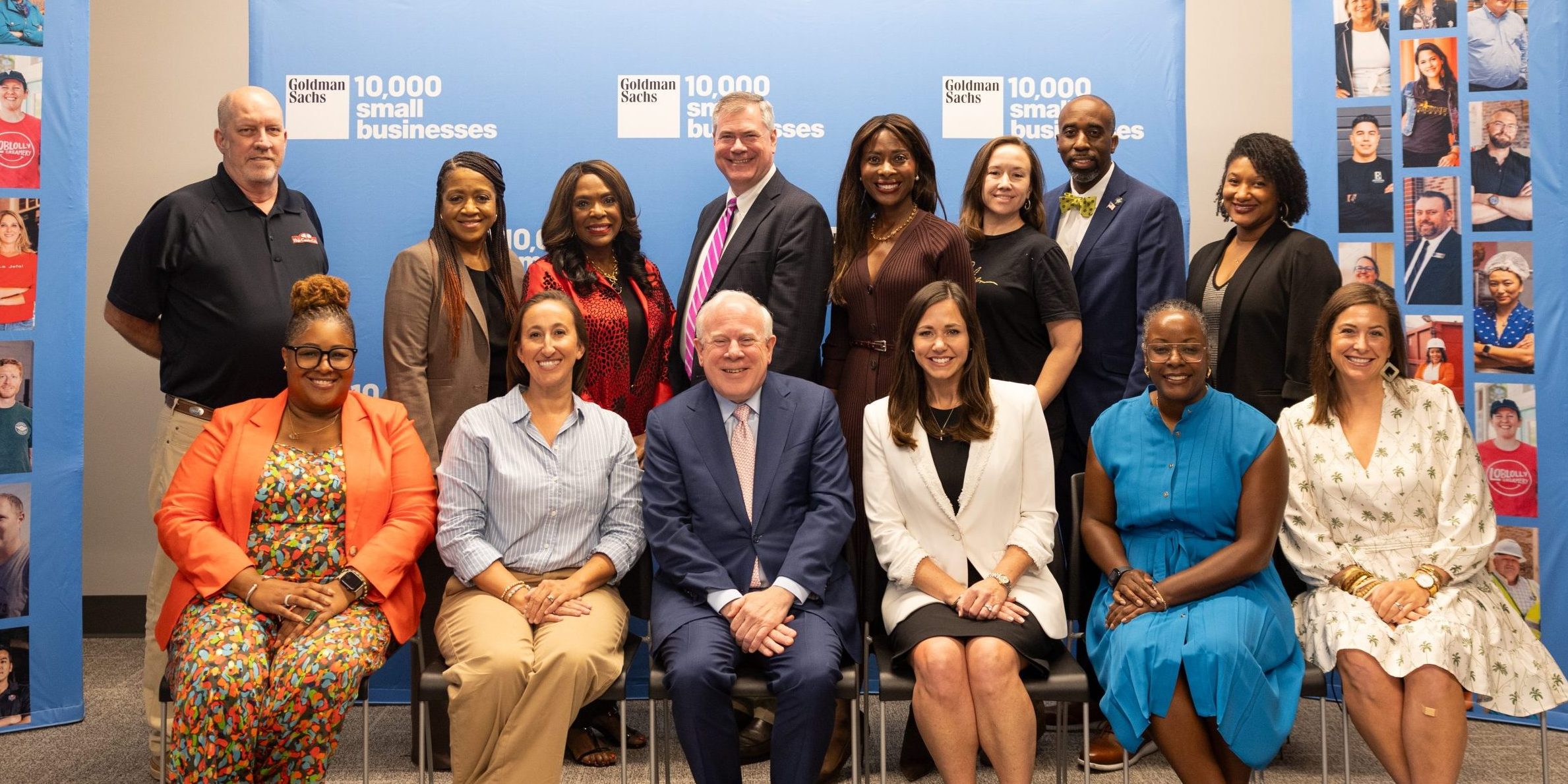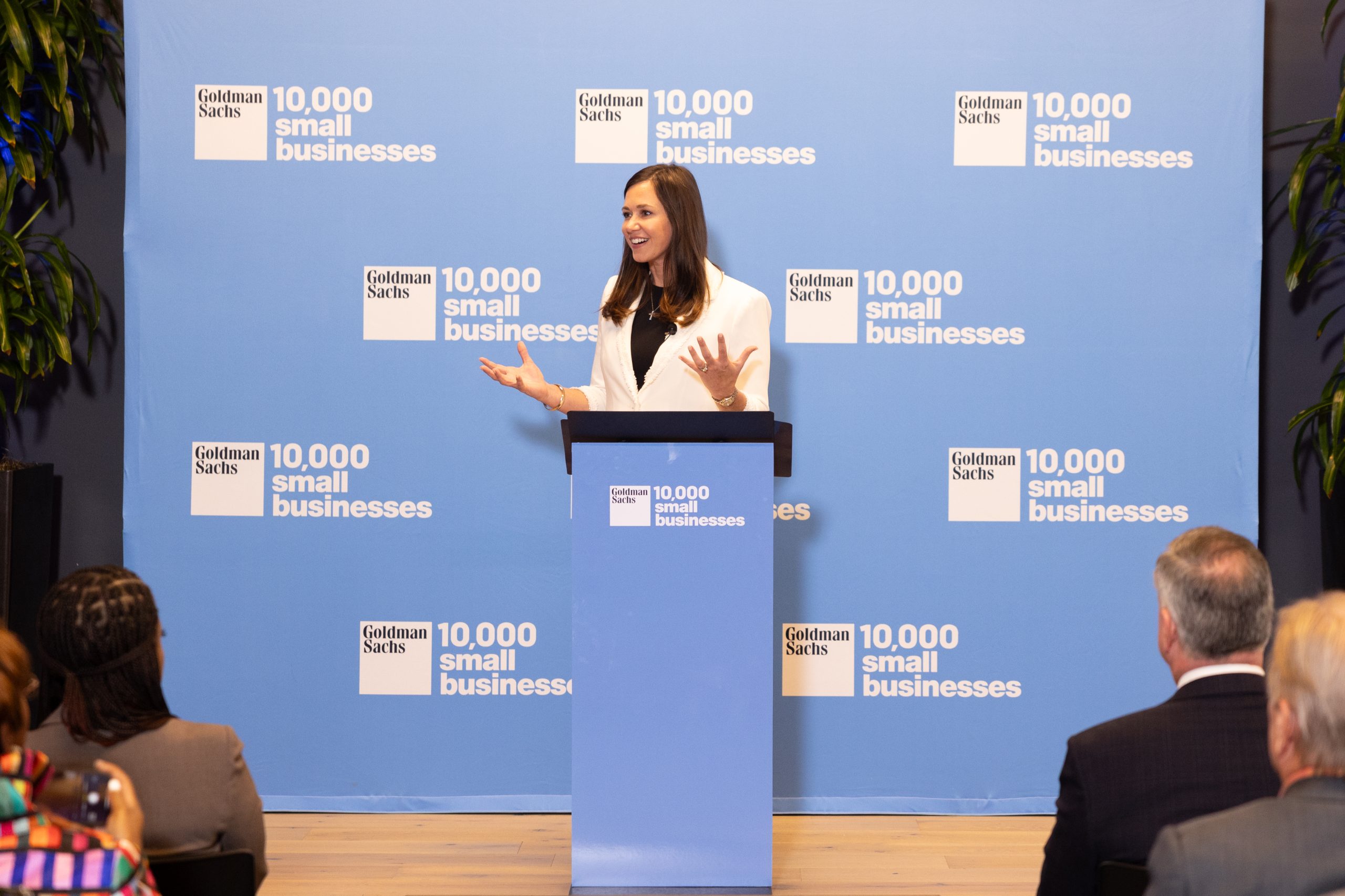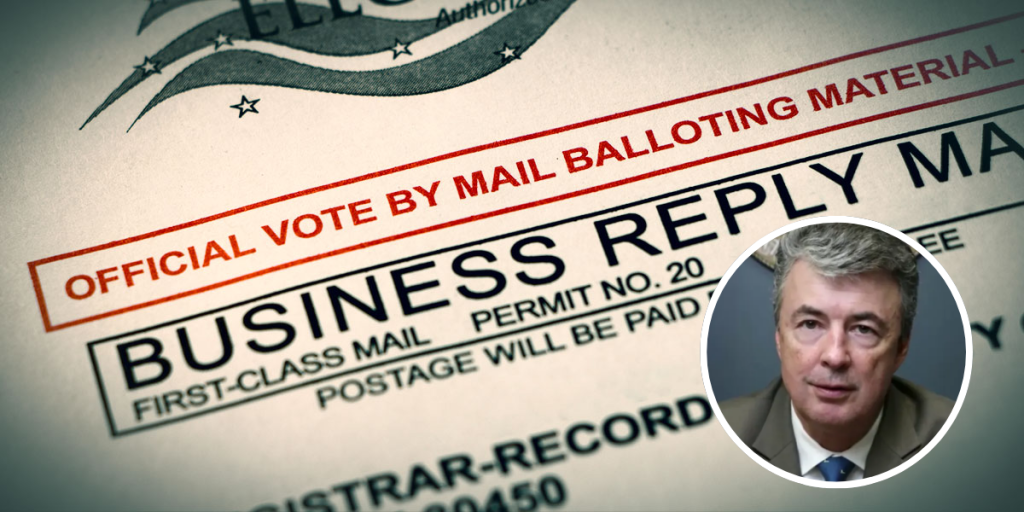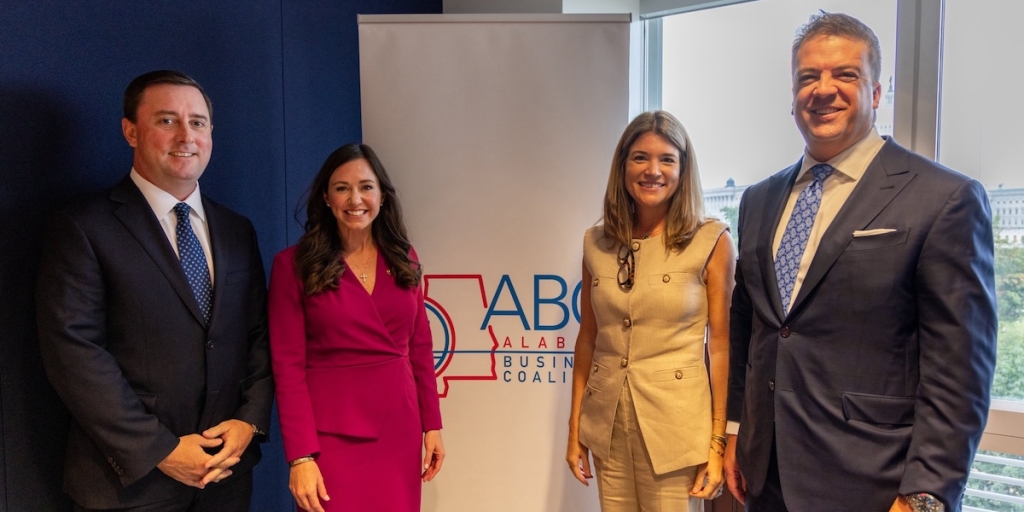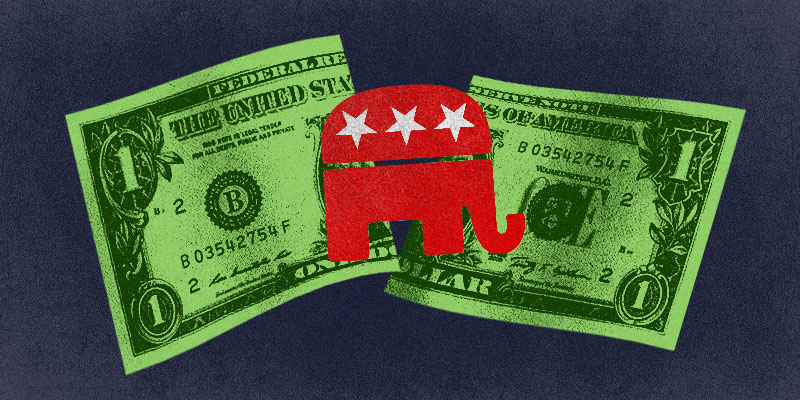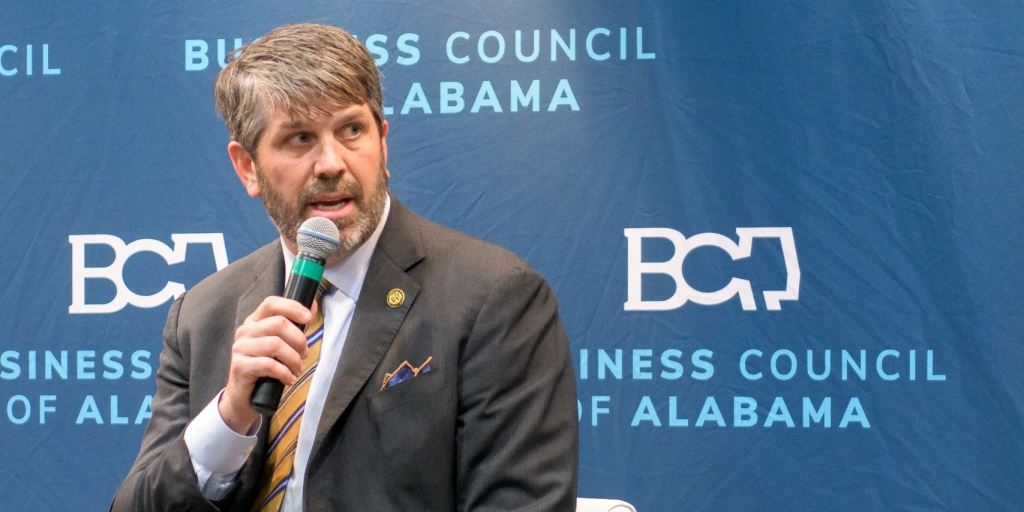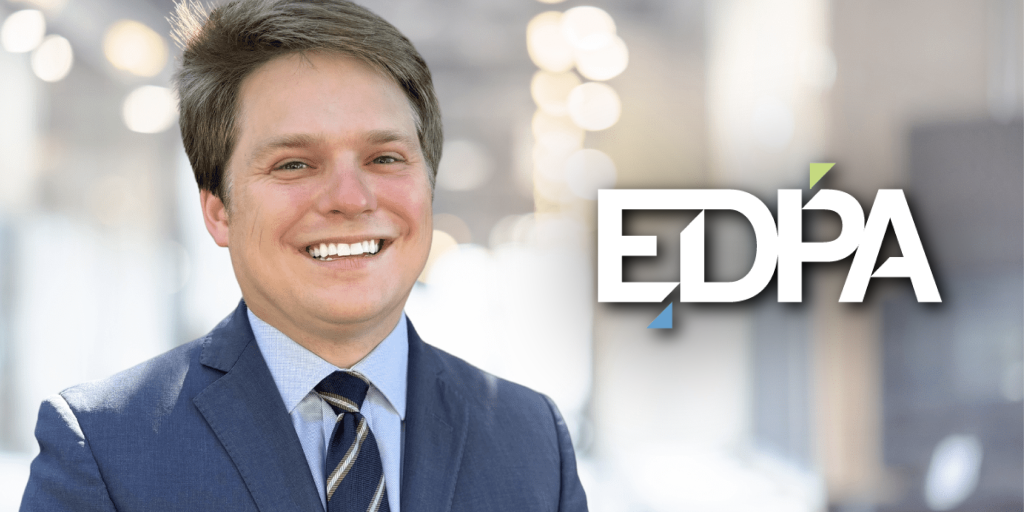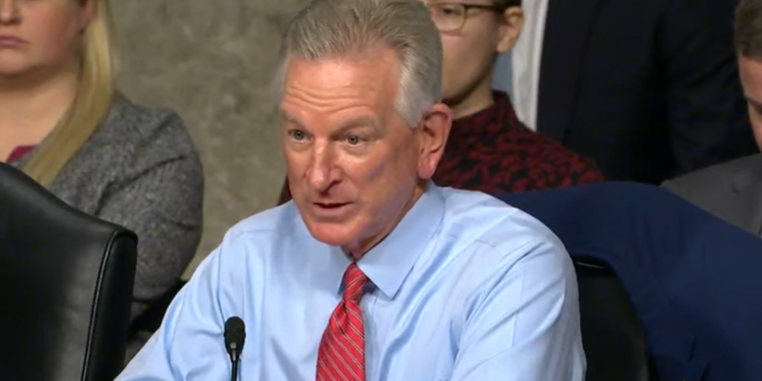Goldman Sachs is expanding its $100 million investment initiative for rural communities, the 10,000 Small Businesses program, to Alabama. At an event last week at Innovation Depot in Birmingham, firm executives alongside U.S. Senator Katie Britt and U.S. Rep. Terri Sewell celebrated the program’s launch — and what it will mean for small business owners who will benefit for years to come.
John F.W. Rogers, Executive Vice President of Goldman Sachs, captured the importance of supporting entrepreneurs as the program expands to Alabama, while acknowledging the challenges rural small businesses face.
“When Goldman Sachs launched this 10,000 Small Businesses program 15 years ago, we brought to the equation resources, partnerships, access to business, education and capital – and, in essence, the medium and the wherewithal,” Rogers said. “But that’s largely where our contribution ended. The real differentiator came from the entrepreneurial spirit that’s already in each one of you, long before this program itself.”
“We stand with Alabama small businesses and are committed to equipping entrepreneurs with the education and resources they need to drive prosperity,” he said.
The investment is an extension of a program that has served 15,500 businesses across the country for more than a decade. The initiative to reach rural small business owners in 20 states over five years and has already helped enable job creation and growth in these communities as it launches in its fifth state: Alabama.
U.S. Senator Katie Britt addressed the room full of community leaders and program participants, introducing herself first as the daughter of two small business owners, who shared stories of her upbringing and the tireless dedication she saw in her parents pursuing the American dream.
Britt noted that 55 out of Alabama’s 67 counties are classified as rural and that 99.4% of businesses in the state are small businesses.
“Now with this effort, Goldman is investing $100 million across rural communities to help boost these small businesses by helping provide business owners with the knowledge and the tools to drive up revenue and to continue to create good paying jobs and at no cost to these small businesses so that they can continue to focus solely on expanding their business and opportunity within their community,” Sen. Britt (R-Montgomery) said.
“To me, it makes perfect sense to do this here in the great state of Alabama, because I believe that there is no sweeter home to do business than Alabama. Our state has a pro-growth, pro-jobs climate, and we have leaders who are committed to ensuring our state is the best place to live, work, worship, and do business.”
RELATED: Support for Sen. Britt’s childcare affordability proposal surging in Alabama and nationwide
During her speech, Sen. Britt reflected on her time as President and CEO of the Business Council of Alabama (BCA), where she saw firsthand the challenges and opportunities encountered by small businesses across the state. Britt noted that public-private partnerships, like the Goldman Sachs initiative, are crucial in addressing many challenges.
Goldman Sachs’ investment includes $75 million to CDFIs for small business loans, $15 million for business education programs at community colleges, and $10 million in capital capacity-building grants. In partnership with HOPE (Hope Enterprise Corporation/Hope Credit Union), Goldman Sachs announced the deployment of $20 million in capital to small businesses in the rural South, including a $3 million commitment to Alabama CDFIs like Communities Unlimited.
For Cara Stallman, owner of Grant Management LLC based in Fairhope, Alabama, joining Goldman Sachs’ 10,000 Small Businesses program has already been “tremendous.”
Stallman is part of the program’s first Alabama cohort, which recently met for its first week of a ten-week education, training and networking course. After 13 years in business, Stallman said in an interview that she has found the structured guidance and sense of community she was always looking for.
“When you’re a small business owner, you’re on your own a lot. There are a lot of things you have to learn. I’ve never taken a business class in my life, but I’ve had to learn how to deal with accounting, and I always feel like I’m behind the curve,” Stallman said.
“But what’s been really tremendous about this program is that it brings together a group of highly motivated, successful small business owners, and that sense of community has been extremely helpful. It also provides structure on how to be more successful and how to look to the future.”
“Most of the time, when you’re a small business owner, you’re just dealing with crisis and emergency, just trying to get through the day and figure out how you’re going to make money or what to do next. But this gives you an opportunity to step back,” she said.
Grayson Everett is the state and political editor for Yellowhammer News. You can follow him on X @Grayson270




